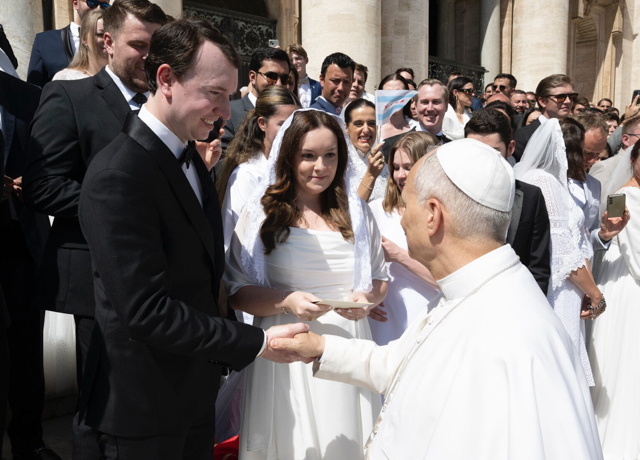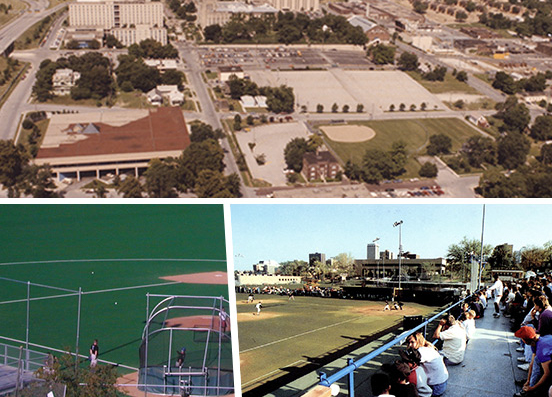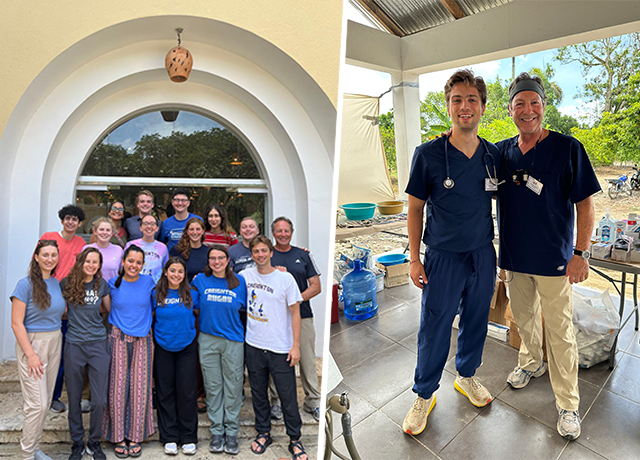Featured Testimonial About Creighton University
Creighton's Jesuit education has been invaluable in shaping my worldly perspective. Projects like the one at Children’s, our interactions with patients, supervisors, and doctors—all of it shapes perspectives and creates impact.
Recent Creighton graduates Avery Steer, BSW'24, and Precious Nakamoto, BSW'24, faced the emotional challenges of working with children in crisis during their senior social work practicum at Children’s Nebraska in Omaha.
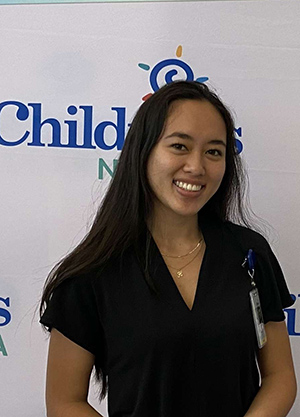
Steer and Nakamoto focused their efforts on suicide prevention, earning recognition from the American Academy of Pediatrics Council on Quality Improvement and Patient Safety (COQIPS). Together, they developed a brochure designed to assist families with safety planning. This resource is now being distributed nationwide in pediatric emergency departments.
“Avery and Precious exemplified professionalism and compassion, creating a lasting resource that embodies the Jesuit tradition of serving others with excellence,” says Cathy Fox, MSW, Field Education Director at Creighton. "Community-based practicums bridge theory and practice, guiding students as they apply skills, collaborate, and discern their passions under supportive supervision.”
In 2023, Steer and Nakamoto were among 79% of College of Arts and Sciences students who participated in experiential learning at Creighton. These include placements at organizations such as Children’s Nebraska, the Centers for Disease Control and Prevention, the Mayo Clinic, the U.S. House of Representatives, and Boys Town National Research Hospital.
Q&A with Avery Steer, BSW’24, and Precious Nakamoto, BSW’24:
How did your practicum deepen your passion for social work?
Precious: "My practicum in spiritual care at Children's was a personal and transformative journey. While I felt well-prepared for the social work aspects, nothing could have fully prepared me for the emotional toll of working with dying children and their families. Despite the challenges, this experience clarified my career goals and gave me a valuable head start as I approach my master’s practicum."
Avery: "As Precious shared, nothing prepares you for the emotional impact of seeing children in crisis, but my classes gave me the foundation to navigate these moments. My time in the critical care unit at Children’s expanded my worldview. It deepened my understanding of the healthcare system and the many roles that contribute to patient care, which was an invaluable part of the experience.”
Q: What does it mean to you that your brochure is now being used nationwide?
Avery: "That our project on lethal means counseling is helping to save lives in pediatric hospitals is incredibly rewarding. Making a real difference for families is why I chose social work. I couldn’t be prouder."
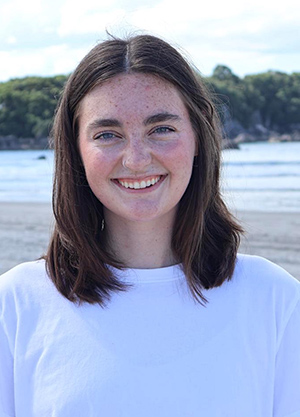
Q: Can you describe some of the work you put into creating the piece?
Precious: "Avery and I conducted a literature review and benchmarked practices from children’s hospitals across the country, including in Phoenix and Seattle, to understand how they support pediatric patients with suicidal ideation. At Children’s Nebraska, we surveyed social work staff to evaluate their comfort level and knowledge regarding safety measures. Using this data, we created recommendations to improve their protocols, and this included the development of the safety brochure.”
Q: How did working together on this project shape your experience?
Avery: “I couldn’t have done this without Precious. Her compassion and strength inspired me, and her support made even the toughest moments manageable. I’m so grateful for her.”
Precious: “Working with Avery was incredible. This project brought us closer and allowed us to grow together. I’m proud of what we accomplished as a team.”
Q: What challenges did you face, and how did you overcome them?
Precious: "My practicum stipend from a generous donor was invaluable—it allowed me to focus fully on my placement and coursework without the added stress of juggling jobs. While I still worked a small on-campus job for about 10 hours a week, balancing a 440-hour practicum with classes and extracurriculars was intense. The stipend made a huge difference in managing it all, and I’m so grateful."
Avery: “The emotional weight of working in suicide prevention was significant, but the support of my supervisors at Children’s and my Creighton mentors helped guide me as a student, a professional, and as a human.”
Q: Reflecting on your time at Creighton, how did it prepare you for your practicum and career?
Precious: “Each year, I grew by applying what we learned in class to real-life situations. Senior year, on my first practicum day, facing two deaths showed me how vital our work is. Although there were those moments when I questioned whether I could keep going, our project showed me that our work matters. The practicum solidified my desire to continue in social work to help others.”
Avery: “Creighton's Jesuit education has been invaluable in shaping my worldly perspective. Projects like the one at Children’s, our interactions with patients, supervisors, and doctors—all of it shapes perspectives and creates impact. Our experiences in and outside of the classroom, combined with our social work education, taught us how to address the issues and be better humans.”
Q: What are your goals?
Precious: “My short-term goal is to finish my master’s in social work, and long-term, I hope to become a school social worker. My practicum in spiritual care, though unexpected, clarified my passion for supporting children and families.”
Avery: “I’m planning to earn a master’s in medical social work, focusing on initiatives like Seattle Children’s suicide prevention program. Long-term, I hope to work in medical social work, ideally in Washington.”
Q: What advice would you give your younger self?
Precious: “Trust your abilities, even when it’s tough. This project, along with the support of my supervisors and mentors, reminded me how small actions make a difference.”
Q: What do you hope others take away from your experience?
Avery: “I hope our story inspires future social work students to take on challenging projects that make a real difference. Creighton’s supportive community makes it possible to grow and thrive, even when the work gets tough.”
Q: What inspired you to pursue a degree in social work at Creighton University?
Precious: "Choosing a school so far from Hawaii was tough, but Creighton quickly became home. The supportive clubs, extracurriculars, and especially the incredible faculty like Cathy (Fox) and Monica (White), in the social work program made all the difference, inspiring me to stay, learn, and pursue my passion for helping others."
Avery: "Moving to Creighton from Washington state was a big step, but it felt right, especially with the Jesuit connection through my mom at Gonzaga. The Magis Core pushed me to explore new subjects, and the diverse perspectives made learning so meaningful. A required social work class changed everything for me. Declaring social work was the best decision—I loved it, especially being part of such a special cohort. I’m a better person because of my practicum and the conversations we had within the social work department."
